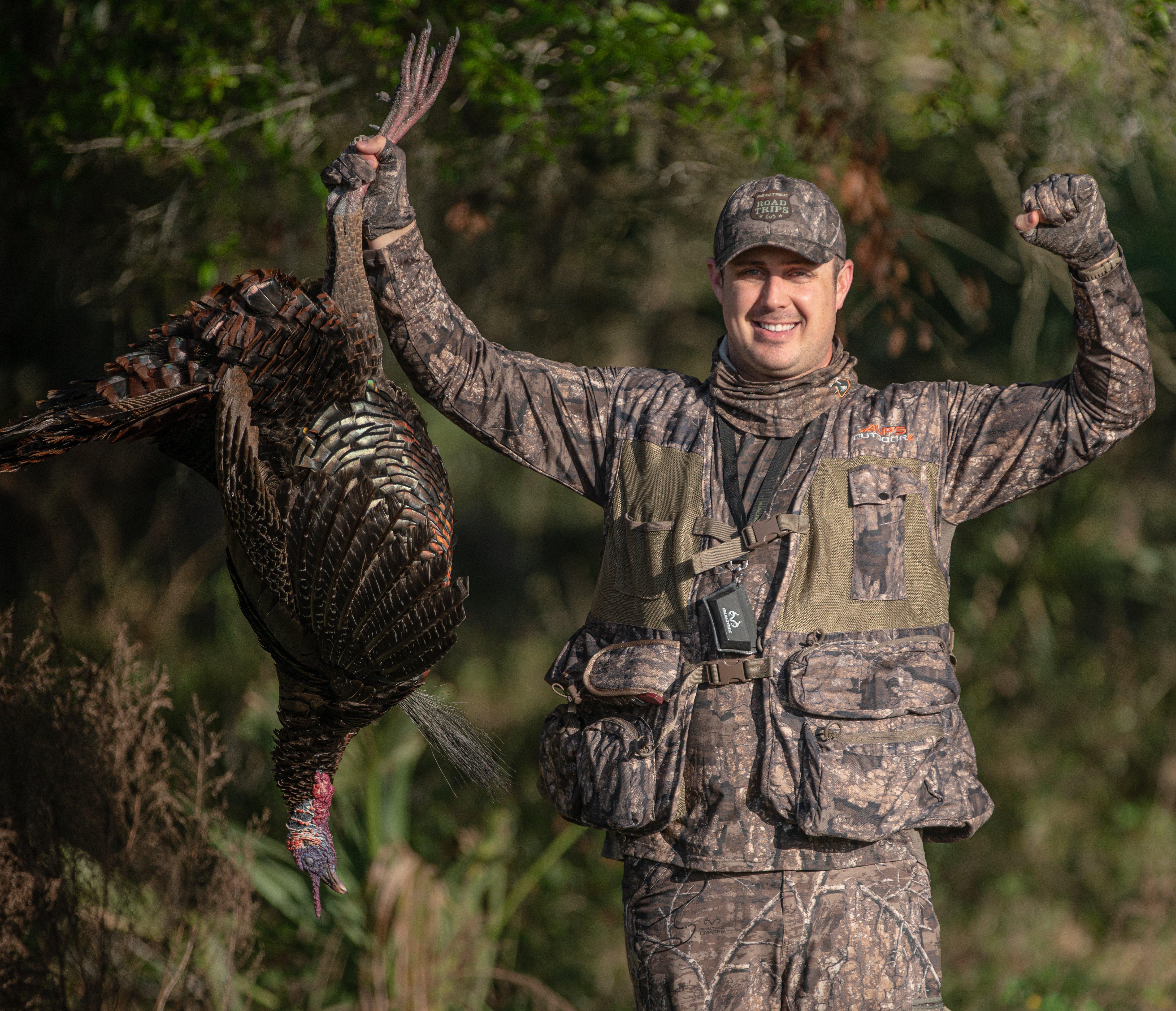Cool weather and early breeding phases are keeping birds quiet on the ground, but expect improvement in the days ahead
Winter is finally fading away and in some parts of the country, turkey season is here. In others, it soon will be. But our focus is on the former.
Florida is the starting gun to turkey season each year. This year, youth season opened February 26-27 in the South Zone and March 12-13 in the North Zone. For adults, the regular season began March 5 in the South Zone (outside of WMA lands) and March 19 in the North Zone.
Hunt Club and Spring Thunder Host Phillip Culpepper has been in Florida. Both he and Drake Lamb recently helped their friends, Michael and Adam Reinbott, in the turkey woods. After battling mosquitoes, unresponsive gobblers, and other challenges, they finally filled a tag. You can watch that hunt on the Realtree 365 app.
Realtree's Tyler Jordan said the Florida birds have been very difficult to hunt, too. He recently filled a tag on a nice gobbler of his own. They are gobbling a little bit on the limb, he said, but the last four days, when they hit the ground, they shut up other than a few gobbles here and there. The bird I killed yesterday gobbled once and came in silent.
Moving northward, in Alabama, the youth-only weekend took place March 19-20, but most experienced average hunting at best, with a few tags being filled. In most of the remainder of the state, the regular season begins March 25.
Shifting westward, the Mississippi turkey season began with the youth hunt, too, which lasted from March 8-14. The regular season kicked off March 15.
Overall, looking to the entire region, it's clear the early-season action has been off to a slow start. Cooler weather has impacted some areas, and overall gobbling activity has been minimal. Turkeys are gobbling decently while on the roost, but promptly shutting up after flying down. Most are spending the day strutting and showing off to hens.
It's still too early in the season for many hens to be nesting, and as a result, gobblers aren't spending much time alone. They're not very responsive to calling or decoying right now, and those that are responding are often doing it silently, suggesting they are primarily subordinate satellite toms. To kill those birds, spend more time in a good location and be patient.
Still, there's hope for killing that boss tom, too. You have several plays. If you know where this bird pitches down, get there long before daylight and be ready. If that doesn't work, try to pattern what birds are doing during the day. Set up along these travel routes. If you haven't done your homework, locate the turkeys and set up as close to the flock as possible. Place a strutter decoy and try to provoke the boss into action. And finally, if you know where birds are roosting, set up and wait for afternoon turkeys to come back to you.
Until next week, good luck. We'll be back with weekly reports from the turkey woods all this spring.
(Don't Miss: 10 Reasons Why You Suck at Calling Turkeys)








